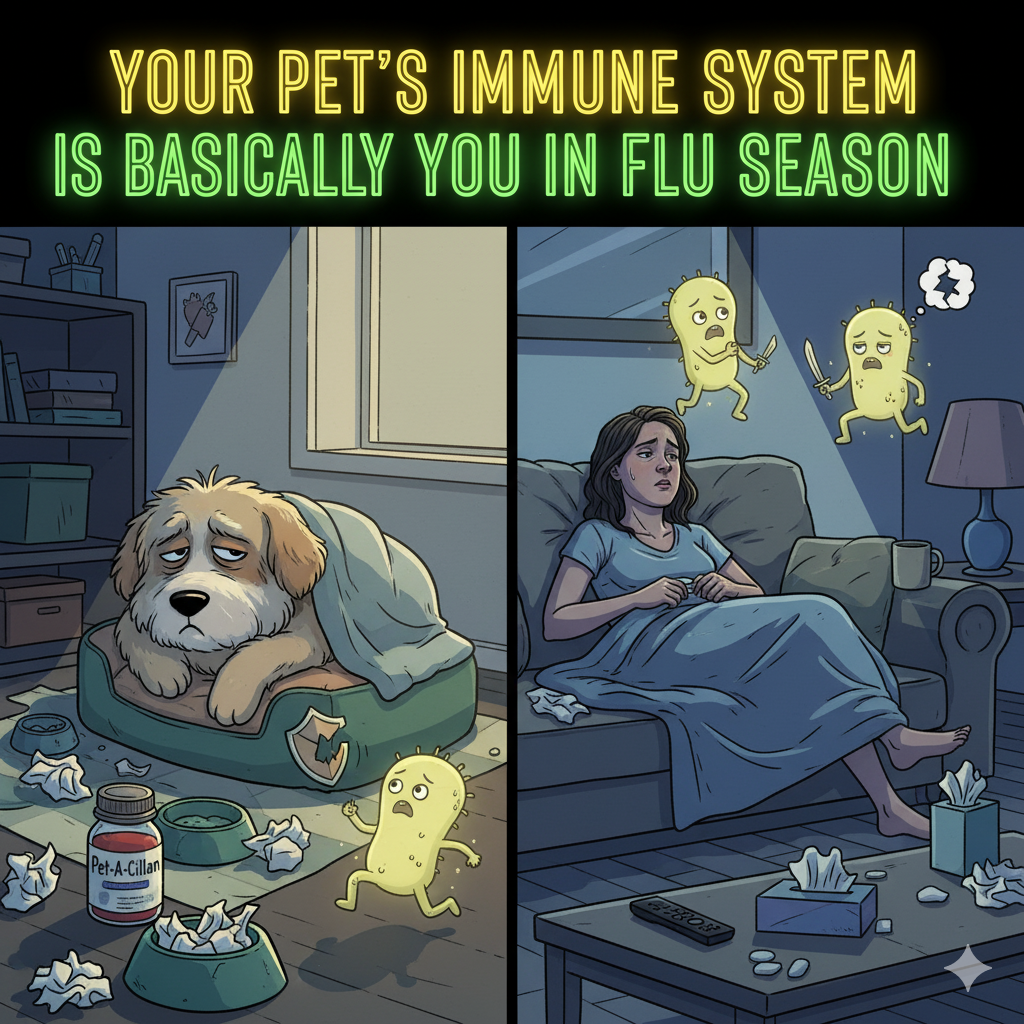Bringing home a new puppy is exciting, but it also comes with responsibility. Among the most important steps in new puppy care is ensuring proper vaccinations. Dog vaccines are more than just routine shots—they are life-saving measures that prevent puppy illness, protect against contagious diseases, and give your furry companion the best chance at a long, healthy life.
For new puppy owners in the USA, understanding why puppies need vaccines, when to vaccinate, and the role of veterinary guidance is crucial. This blog explores how vaccinations help prevent puppy illness, what diseases they target, and why they are considered essential by vets worldwide.
Why Puppies Need Vaccines to Prevent Puppy Illness
Puppies are born with immature immune systems, making them vulnerable to infections. While they initially receive some antibodies from their mother’s milk, this protection fades quickly. Vaccinations step in to train a puppy’s immune system to recognize and fight dangerous pathogens before they can cause serious disease.
Without vaccinations, puppies are at risk of contracting life-threatening conditions like parvovirus, distemper, rabies, and hepatitis. These diseases are often expensive to treat, highly contagious, and in many cases, fatal. That’s why vet recommended puppy vaccines are considered non-negotiable for responsible dog ownership.
Core Vaccines for Puppies
Veterinarians divide vaccines into “core” and “non-core” categories. Core vaccines are essential for all dogs, while non-core vaccines are recommended based on lifestyle and regional risks.
Core vaccines for puppies include:
- Canine Parvovirus (Parvo): Prevents a deadly intestinal virus common in puppies.
- Canine Distemper: Protects against a contagious virus affecting the respiratory, gastrointestinal, and nervous systems.
- Adenovirus (Hepatitis): Shields puppies from a serious liver disease.
- Rabies: Required by law in the U.S. due to its fatal nature and risk to humans.
These vaccinations are the foundation of efforts to prevent puppy illness across the country.
Puppy Vaccination Schedule in the USA
A puppy vaccination schedule typically begins at 6–8 weeks of age and continues until about 16 weeks. Here’s a simplified breakdown:
- 6–8 weeks: First shots for parvo and distemper.
- 10–12 weeks: Boosters for parvo and distemper, plus hepatitis.
- 14–16 weeks: Rabies and final core vaccine boosters.
- 12–16 months: Booster shots as recommended by your vet.
This schedule may vary slightly based on breed, region, and veterinarian advice. Dog owners learning about vaccination schedules should always consult their local vet for a tailored plan.
Common Puppy Diseases Prevention Through Vaccines
Vaccines play a direct role in common puppy diseases prevention by lowering the chances of infection and community spread. For example:
- Parvo: Highly contagious and often fatal. The puppy parvo vaccine offers strong protection.
- Distemper: Once common in shelter dogs, now largely preventable through vaccination.
- Rabies: Required for public safety and legally mandated.
- Kennel Cough (Bordetella): Important for puppies in boarding, daycare, or training programs.
By following a vet’s advice, families adopting puppies can rest assured their new pet is protected.
How Vaccines Work to Prevent Puppy Illness
Vaccines contain harmless versions of disease-causing agents, either weakened or inactivated. When administered, they stimulate the immune system to produce antibodies. If the puppy is later exposed to the real disease, their body is prepared to fight it off effectively.
This process not only protects individual pets but also contributes to herd immunity, reducing the spread of disease among dogs in a community. Veterinary clinic clients often hear this concept explained as “protection for all dogs, not just yours.”
Importance of Dog Vaccines for Puppy Health
The importance of dog vaccines extends beyond individual care. For U.S. pet parents worried about parvo and distemper, vaccines are reassurance that their dog won’t fall victim to preventable illnesses.
Additionally, vaccinations are:
- Cost-effective: The puppy shots cost in USA averages between $75–$200, far less than the thousands spent treating parvo or distemper.
- Required: Many states require rabies vaccines, and boarding facilities demand proof of vaccination.
- Life-saving: Vaccines prevent diseases that carry mortality rates as high as 90% in unvaccinated puppies.
For people researching affordable puppy care, this makes vaccines one of the best investments in a dog’s health.
When to Vaccinate Puppies: Timing Matters
The question of when to vaccinate puppies is critical. Puppies should receive their first shots at 6–8 weeks, but skipping or delaying vaccines can leave them exposed.
Dog breeders educating new owners often emphasize strict adherence to vaccination schedules to ensure puppies thrive in their new homes. Similarly, animal shelter adopters are usually provided with initial vaccination records to continue with their vet.
Vet Recommended Puppy Vaccines & Lifestyle Choices
Not every puppy needs the same vaccines beyond the core set. Non-core vaccines may include protection against Lyme disease or canine influenza.
Factors influencing vaccine choices include:
- Region (ticks are more common in some U.S. states)
- Lifestyle (boarding, dog parks, daycare)
- Health status
A veterinarian will guide pet lovers concerned about puppy health on the best options for their individual dog.
New Puppy Care Tips Beyond Vaccination
While vaccinations are the cornerstone to prevent puppy illness, they should be combined with other care practices:
- Nutrition: A balanced diet supports immunity.
- Parasite prevention: Flea, tick, and heartworm protection are crucial.
- Exercise and socialization: Help puppies grow strong and well-adjusted.
- First aid knowledge: Owners should learn about issues like heat stroke first aid dogs to be prepared for emergencies.
By following these new puppy care tips, owners can create a safe, healthy environment.
Prevent Puppy Illness: Building Lifelong Health
Vaccinations aren’t just a one-time event—they are the first step in a lifetime of wellness. Routine boosters, vet visits, and ongoing preventive care ensure your dog remains protected.
For first-time dog parents and families adopting puppies, following through on vaccination plans builds trust with veterinarians and strengthens the bond between dog and owner.
Preventing puppy illness is ultimately about giving your furry friend the gift of health, safety, and happiness.
Final Thoughts
Vaccinations are essential tools to prevent puppy illness and safeguard against deadly, contagious diseases. They are affordable, effective, and universally recommended by veterinarians across the USA. Whether you’re an animal shelter adopter, a dog breeder educating new owners, or a pet lover concerned about puppy health, staying informed about when to vaccinate puppies and following the right puppy vaccination schedule ensures your furry companion grows up healthy.
Investing in vaccines is one of the most important decisions you can make for your dog’s future. With the right care, guidance, and love, your puppy will not only avoid preventable diseases but also enjoy a happy, active, and long life.






1 thought on “How Do Vaccinations Help Prevent Puppy Illness?”